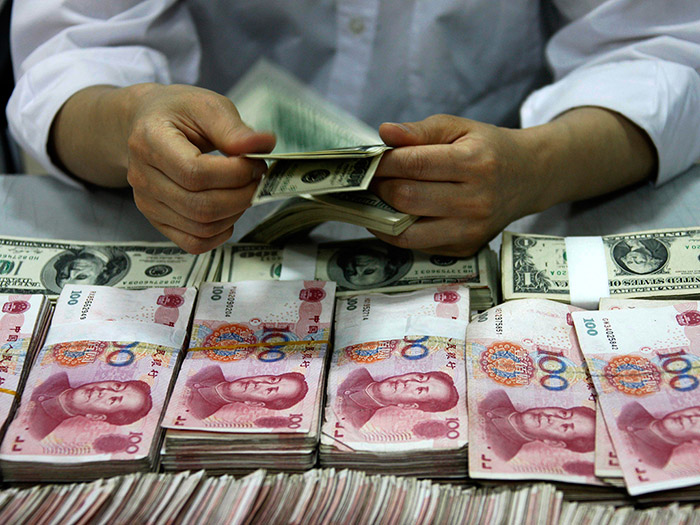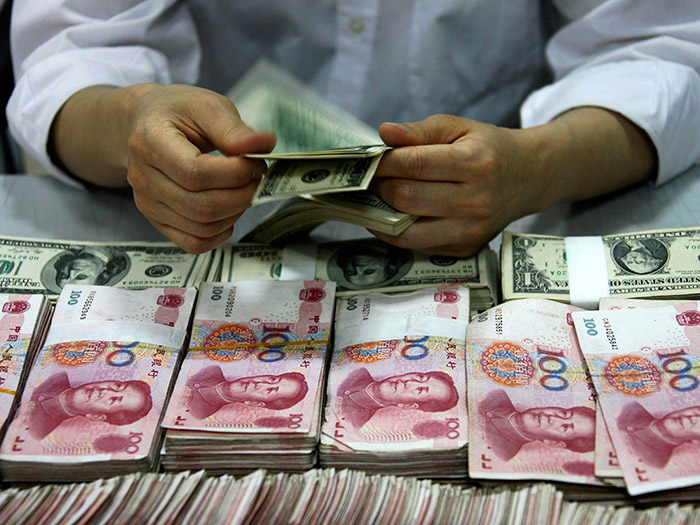China is now the second largest economy in the world, after Japan, and continues to grow steadily at about 10 percent per year. Thus, all eyes are frequently on China these days. What they do now has global implications. If they rise, we all rise. If they fall, they take a lot of people down with them.
Although China is not just a major player in the region -- it is a major player in the world -- as is always the case, proximity matters. What China chooses to do has a particularly strong impact on countries near to hand. Cambodia is one of the countries near to hand that is particularly strongly impacted by any ripples in the Chinese economy.
 Many countries in Southeast Asia have been struggling with internal market uncertainties. In contrast, China's continued generally strong economic growth has fueled a trend in increased international investment. In 2015, China doubled their international investment compared to the year before. In aggregate, it totaled just under US$30 billion.
Naturally, there are a number of factors impacting the investment decisions of Chinese investors. The recent instability of the Chinese stock market is one important factor driving Chinese investors to diversify their portfolio by looking outside of the country for capital safe havens and opportunities.
Many countries in Southeast Asia have been struggling with internal market uncertainties. In contrast, China's continued generally strong economic growth has fueled a trend in increased international investment. In 2015, China doubled their international investment compared to the year before. In aggregate, it totaled just under US$30 billion.
Naturally, there are a number of factors impacting the investment decisions of Chinese investors. The recent instability of the Chinese stock market is one important factor driving Chinese investors to diversify their portfolio by looking outside of the country for capital safe havens and opportunities.
 Many countries in Southeast Asia have been struggling with internal market uncertainties. In contrast, China's continued generally strong economic growth has fueled a trend in increased international investment. In 2015, China doubled their international investment compared to the year before. In aggregate, it totaled just under US$30 billion.
Naturally, there are a number of factors impacting the investment decisions of Chinese investors. The recent instability of the Chinese stock market is one important factor driving Chinese investors to diversify their portfolio by looking outside of the country for capital safe havens and opportunities.
Many countries in Southeast Asia have been struggling with internal market uncertainties. In contrast, China's continued generally strong economic growth has fueled a trend in increased international investment. In 2015, China doubled their international investment compared to the year before. In aggregate, it totaled just under US$30 billion.
Naturally, there are a number of factors impacting the investment decisions of Chinese investors. The recent instability of the Chinese stock market is one important factor driving Chinese investors to diversify their portfolio by looking outside of the country for capital safe havens and opportunities.
Additionally, their ongoing devaluation of their currency is being done to intentionally give them trade benefits. This is also driving investors to from within China to move money outside of China, exactly as it is intended to do. The explicit policy objective of their ongoing currency manipulation is to enhance their ability to export goods and services. This may be why predictions suggesting they would retrench their outbound capital failed to be realized. Instead, their overseas investments in real estate continued a strong upward trend throughout 2015.
Although the lion's share of this outbound capital continues to be invested in big markets, such as US commercial real estate, the UK and Australia, a certain market segment is gradually turning more attention towards regional centers closer to China's own backyard, such as the ASEAN nations. These areas are beginning to have a bit more appeal for small- to mid-cap investors who desire higher yields.
The traditional centers of Chinese investment interest -- places like London and major cities in the United States -- are in no danger of being ignored. In spite of the high cost of entry into markets in well developed countries, they have a long track record of being solid investment opportunities. Thus, they are worth are worth it.
But the "Belt and Road" policy is beginning to encourage more Chinese institutional investors to look at opportunities much closer to home. The main places expected to benefit from this trend include India, Hong Kong and all ASEAN countries. Since Cambodia is an ASEAN country, it is included in this list. There is also reason to believe that Japan will continue to draw substantial investment interest from China.
Thanks to the aforementioned policy changes and the ongoing RMB devaluation within China, the odds look good that China will continue to invest heavily overseas. While the bulk of that money will certainly go to traditional gateway markets, regional hubs in Southeast Asia are likely to start seeing more than just a splash or two from the fire hose of Chinese outbound capital.
Even if their forward momentum slows down, as some people are predicting, the fact that they have one of the largest populations in the world, a huge mass of land, and have established and sustained consistent economic growth for some years now strongly suggests that they will continue to be a force majeure on the global economic scene. The policy changes and trends in motion make it highly likely that the drips and drops of regional investment we have already seen will grow to a steadier stream. We are looking forward to helping Cambodia tap into that stream.
Given the drama that occurred when China's stock market took a noticeable dip recently, some people are understandably concerned about the near and mid term outlook for Chinese outbound capital and its impact on international markets. As is often the case in stock markets, the dip -- down 6 per cent in the Shanghai Composite index, and down more than 7 per cent in the Shenzhen Composite -- caused panic selling, thus deepening the problem.
Predictably, some folks fear that the impact on Cambodia's real estate may be negative, not positive. One cause for this concern is that, because Cambodia is a Least Developed Country, it benefits enormously from its ability to export to some of the more developed countries, such as the US. Additionally, the Cambodian riel is pegged to the US dollar. These facts make the country especially sensitive to international economic drama involving the US.
Understandably, people held their breath when the Chinese stock market dip caused fallout in the American markets. Fortunately, the situation was short lived and did not turn into a long term slide. The US and other important markets quickly rallied. This is in spite of the fact that China's RMB devaluation is an ongoing policy specifically intended to manipulate the American market for China's benefit. In spite of how China's population dwarfs that of the US, the American markets are surprisingly robust -- or, perhaps, not so surprisingly since the US is one of the more developed countries in the world.
In spite of a 40 percent drop in the Shanghai exchange and predictions that this may have a long term negative impact on Cambodian real estate, there was no serious distress in the short term. Nonetheless, Chinese investment plays an important role in infrastructure development, agriculture, hydropower, and industry for Cambodia. Chinese investors are a major force in some areas of industrial development in Sihanoukville, one of the three most important cities in the Cambodian market, if only because it has the only deep sea port in the country.
Because global events hit Cambodia hard in 2008, this most recent incident was met with a proactive government response. They promptly set out to run the necessary analyses and put protections in place to avoid another serious recession.
The country's capital, Phnom Penh, is the single most important city in Cambodia. A high percentage of its new residential development is being snapped up by foreign buyers. Prices have been heating up, causing talk of a possible bubble in this market.
We believe this to be unlikely because Cambodia lacks the essential ingredients for creating such a situation. Among other things, bubbles require excessively high rates of leverage. The conservative banking system in Cambodia has been a strong safeguard against that situation developing. Thus, Cambodia simply does not have that particular problem and it is unlikely to develop a bubble, only to see it burst catastrophically.
The rate at which China is moving manufacturing out to other parts of Southeast Asia is astonishing. This region may well displace China as the seat of global manufacturing. The trope "Made in China" may be replaced by "Made in Southeast Asia."
Of course, China's economic slowdown has been felt in the region. This may have a silver lining in the form of taking some of the wind out of the sales of speculative buying in Phnom Penh. Prices might come down a bit to more reasonable, sustainable levels. Some people would not be happy, but it might be best for the market overall.
China is an economic giant locally and globally. With Cambodia resting midway between it and India, we are bound to be hit by any turbulence from either one, yet also buffered to some degree by the existence of the other. Adding more stability is Cambodia's membership in ASEAN and links to other markets, such as Australia.
Nothing can completely shield Cambodia from the ups and downs of China's economy, but the recent drama proved to be more disconcerting than actually dislocating. Whether it is a bull market or a bear market, there are always some winners and some losers.
As long as things keep humming along in the right direction overall, Cambodia should fair okay. The fundamentals here are pretty solid and many people are working hard to keep things going along in the right direction. We are cautiously optimistic about the foreseeable future.




Comments